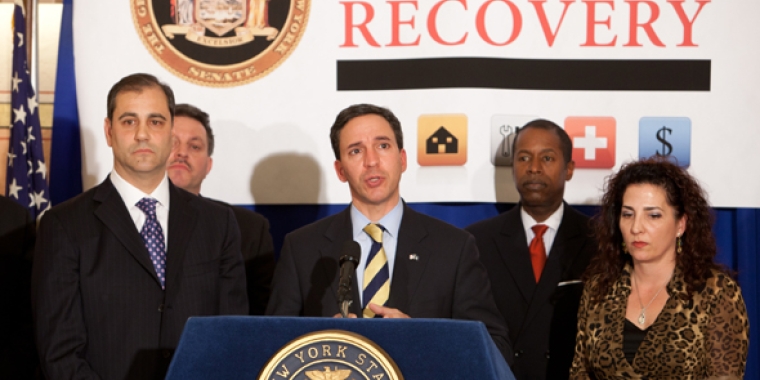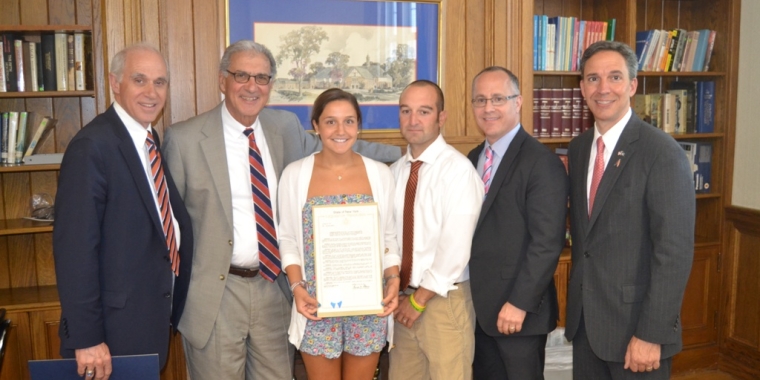Senate Bipartisan Task Force on Hurricane Sandy Recovery Issues Preliminary Report
Jack M. Martins
February 6, 2013
-
ISSUE:
- Local Government
- Hurricanes
-
COMMITTEE:
- Local Government

Less than three months after Senate leaders launched the New York State Senate Bipartisan Task Force on Hurricane Sandy recovery, the Task Force has released its preliminary report and recommendations on Sandy relief and storm planning. The preliminary report and recommendations come after Task Force members toured storm damaged communities across the New York City Metro Area, including Freeport, Island Park, Oceanside, The Rockaways, Staten Island, Brooklyn, Manhattan, and the Hudson Valley.
Following each tour, the Task Force held roundtable discussions with over one hundred community, private sector, and government stakeholders, including major insurance carriers and senior members of the Cuomo administration. The preliminary report outlines the Task Force’s key findings from these roundtables and sets forth 10 preliminary recommendations. The Task Force will release a final report in the coming weeks.
The Task Force’s key findings and preliminary recommendations include:
· Developing certification and licensing procedures for mold remediation contractors.
· Supplementing existing business loan programs with direct grants to businesses severely impacted by Sandy.
· Working with the Department of Financial Services to expedite insurance claim check processing to ensure that homeowners get the resources they need to rebuild their homes as soon as possible.
· Developing better statewide protocols for gasoline distributions so that the energy needs of first responders and other critical service providers are properly prioritized.
· Exploring the use of soft barriers as a means of mitigating future storm damage.
Senator Jack M. Martins, a member of the task force, stated, “We have had the opportunity to visit the areas most affected by Superstorm Sandy and to listen firsthand to the concerns of our communities. We are now moving forward on legislation that will meet the needs of our communities and better prepare us for future storms.”
The preliminary report can be downloaded below.
